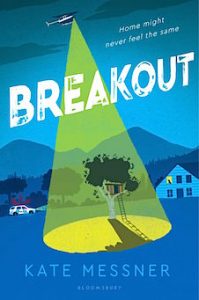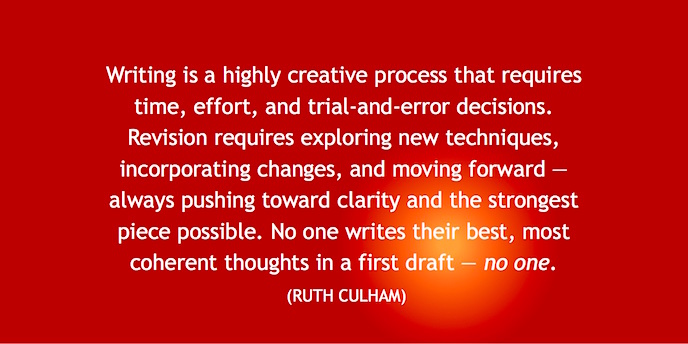 Do you want to become a more confident and prolific writer?
Do you want to become a more confident and prolific writer?
Maybe you’d like to begin (or really commit to) a professional blog and share more of your thinking and reflection with an audience (like Florence City’s Michelle Russell does here).
Maybe you want to publish an article in one of the widely read ASCD venues or a space like Corwin Connect to describe a successful practice that’s going on in your classroom or school.
Maybe you feel it’s time to write a book! It might be a collection of strategies and great lesson ideas you’ve honed over time. It might even be a novel.
Or maybe you sense that by writing more, you’ll become a better teacher of writing and gain insights that you can share with your students and colleagues.
Whatever your reasons for polishing your writing skills, these articles and tools (click on the titles) can help.
Separate Your Writing from Your Editing
My background in education journalism, writing and editing stretches back 40 years, and for more than half that time I’ve had the opportunity to work with Cathy Gassenheimer in the kind of mentor-mentee relationship where there’s a lot of role-swapping. We’ve both become better writers as a result, and we love to send each other good articles about the writing craft.
Not long ago Cathy sent me this one, by Anupam Krishnamurthy, a youngish international consultant who (after many fits and starts) made a commitment to blog every day for a year. His post at the popular Medium blog distills some of what he’s learning from his daily writing regimen.
I had several a-ha moments as I read:
- The therapeutic value of writing is underappreciated. “The act of writing has limitless potential.” Follow his links. Writing as a daily exercise can be a healthy workout for the mind and spirit.
- Anupam’s key discovery, found in his title, is that the most successful writers “have always separated their writing from their editing.” I think this is mostly true. I’ve worked with hundreds of educator-writers over the years and those who struggled most exhibited an innate fear of putting down a wrong word or ‘leaving behind’ an unpolished sentence as they wrote. They soon bogged down in the need to get everything just right – right now! – and their initial flow of ideas became a trickle. By following Anupam’s practice of determinedly holding apart the initial writing act and the editing process, we can keep the flow of words and ideas strong. ALERT: His sculpting metaphor is powerful. Be sure to read and reflect on that!
- Student writers can benefit from this same write-then-edit insight. An article by writing teacher Ruth Culham (who ‘invented’ the 6+1 Traits of Writing process) is perfectly on point. It’s titled “Rethinking Revision: The Real Work of Writing.” Culham begins, “Children don’t hate to write; they hate how we teach writing.” Adopting her advice about revision will help students and adults become more fluent and eager wordsmiths.
Becoming Your Own Expert – Teachers as Writers
Looking back more than 30 years, we find further affirmation that teachers who dedicate themselves to writing also become better teachers of writing. This 1985 piece by middle grades teacher and Writing Project veteran Tim Gillespie argues that teachers need to write so that their work with student writers can be “based on knowledge we have earned ourselves….” (Gillespie went on to author a 2010 book for Stenhouse, Doing Literary Criticism: Helping Students Engage with Challenging Texts.)
6 Reasons Why Your Students Should Critique Your Writing
Veteran 5th grade teacher Jennifer Laffin is now a writing coach and co-moderator of the #teachwrite Twitter community. Her revelations about the value of writing with and for your own classroom audience came during an online PD course that required her to write assignments that received feedback from established authors. (Corwin Connect blog)

Writing for an Audience Beyond the Teacher: 10 Reasons to Send Student Work Out Into the World
The New York Times Learning Network has become a wonderful resource for teachers who want to create more “authentic audiences” for student writing. This article, just updated after NYTLN editors spent time with teachers at this fall’s NCTE Conference, includes quotes from teachers across the country who comment on each of the 10 reasons. As I read it, I realized that many of these reasons might also apply to teacher-writers themselves, with minor tweaks.
Revisiting Writing
In October, the free newsletter ASCD Express offered a collection of useful articles around the theme “Revisiting Writing.” You’re sure to find fresh ideas in pieces like “Jump-Starting Content-Area Writing in Secondary Classrooms” and The Encouragement Resistant Writers Need.” Another ASCD Express article, “Documentation of Learning Makes Growth Visible,” digs deep into the idea of teacher reflection (including writing) as a shared experience with students.
Kate Messner: Advice for Teachers Itching to Write Fiction

Kate Messner is the author of more than 30 Children’s and Young Adult books and a passionate supporter of teacher writing. Her virtual summer writing camp brings together educators and notable published writers for an amazing, immersive writing experience (see 2018 here and here).
If you’re a Twitter user (and you should be – it’s a great PD tool) follow Kate to keep up with many activities and developments that have a teacher writing component. (If you’re a teacher with a secret desire to write for kids, you’ll find a receptive community here. And there’s a book, 59 Reasons to Write, that includes contributions from many teachers who became authors.)
Write for Us!
The ABPC Blog has published dozens of articles by Alabama teachers, instructional partners, and school leaders over the past five years. We’d love to hear your story idea. Cathy Gassenheimer and I are here to give you helpful editorial support, as we do for all our contributors. Send Cathy a note and let’s explore!


0 Comments on "Pursuing Your Goal to Become a Strong and Committed Writer"